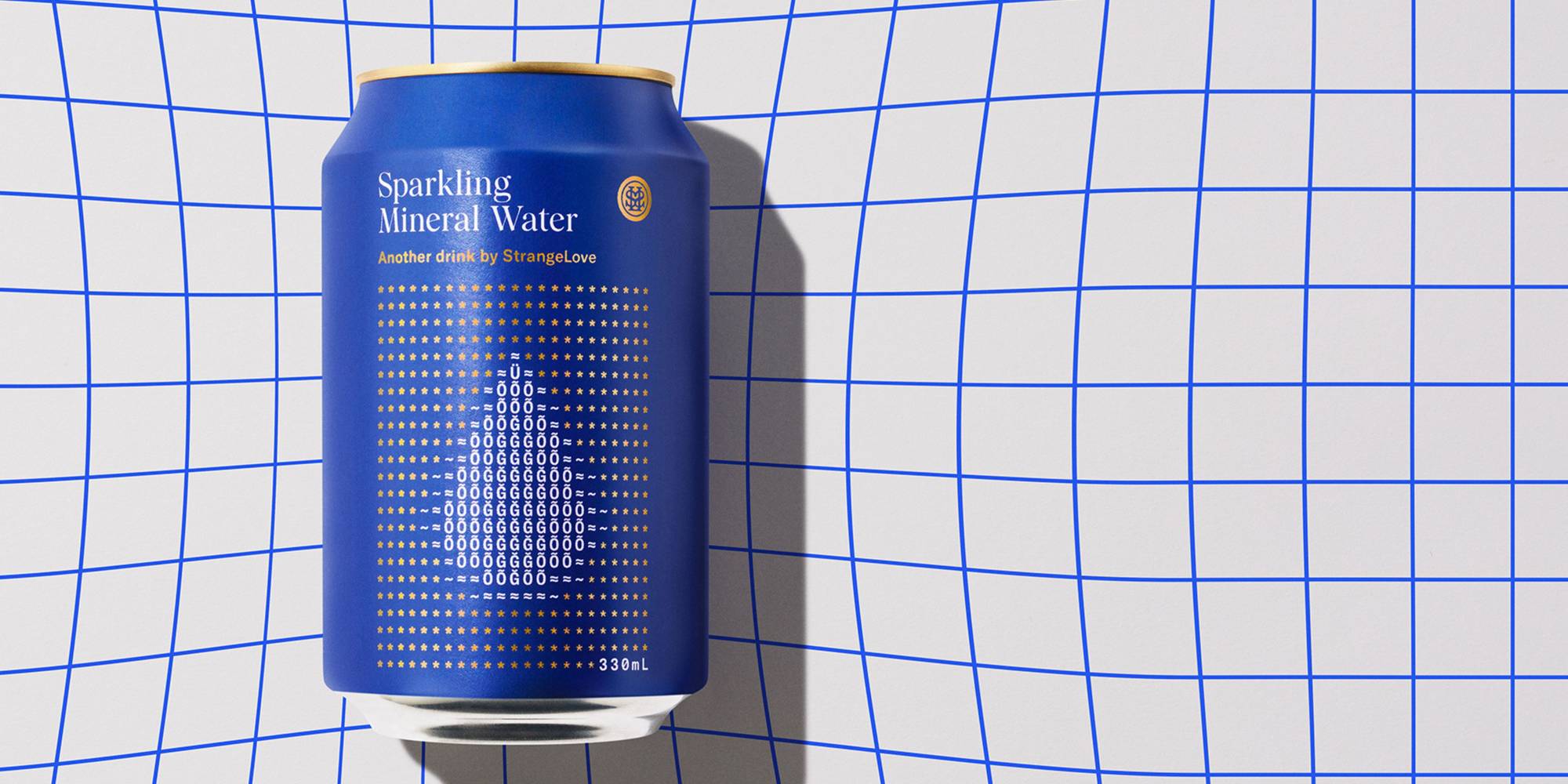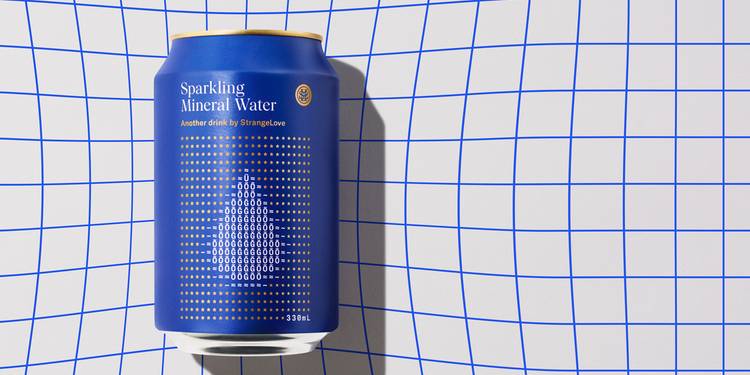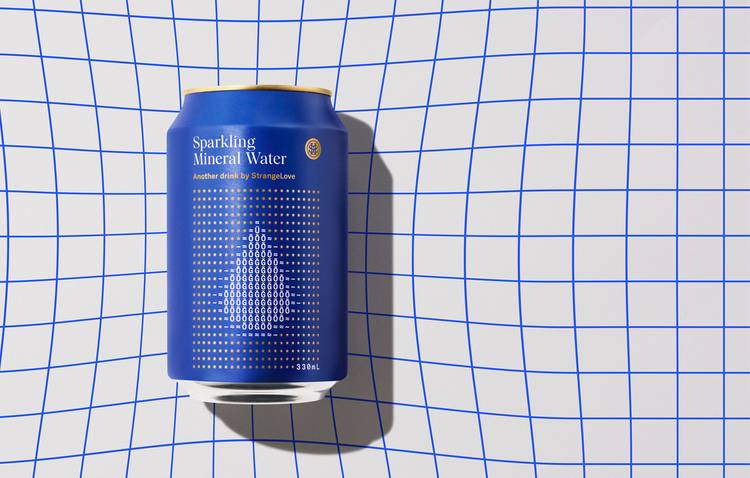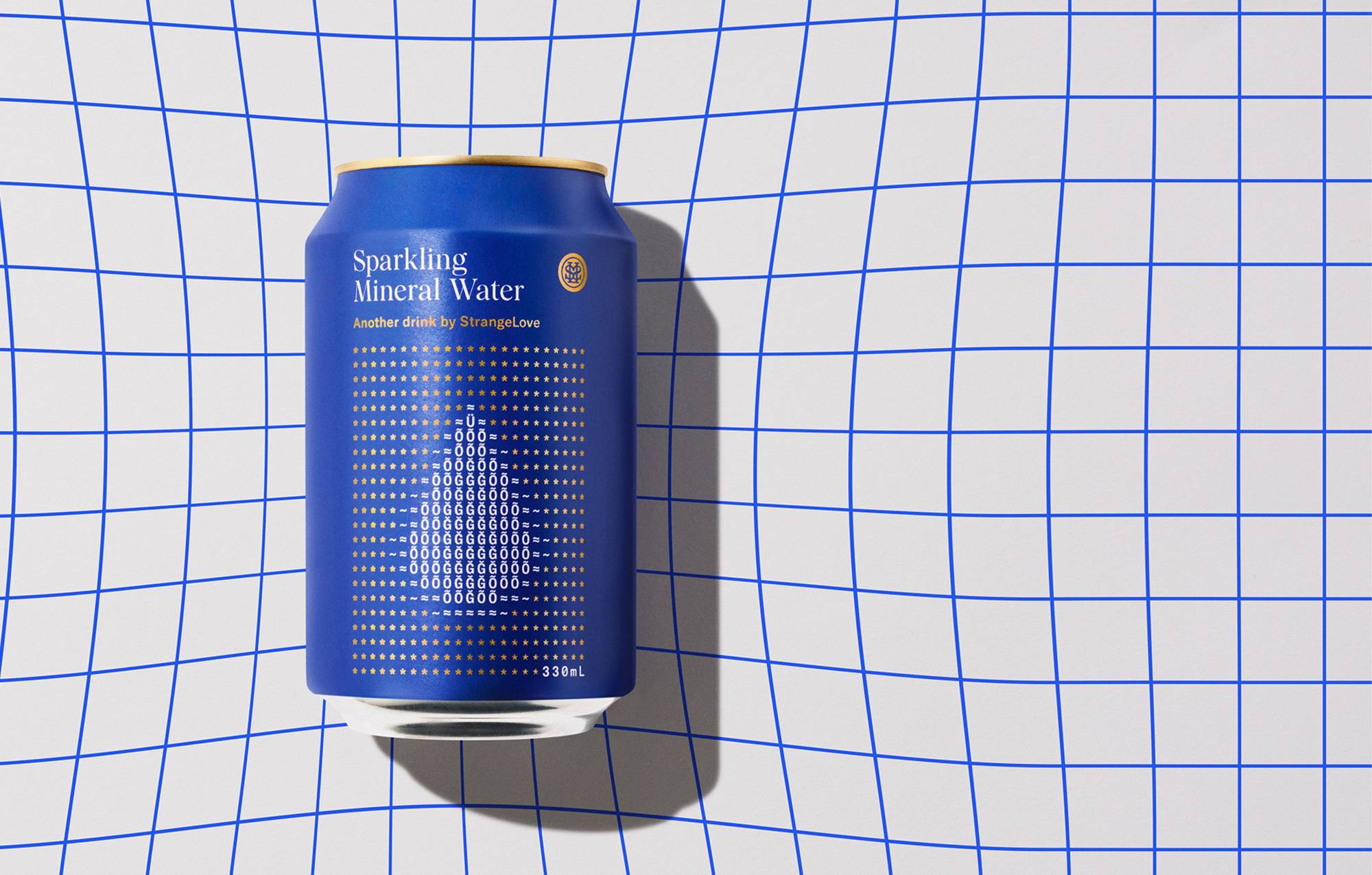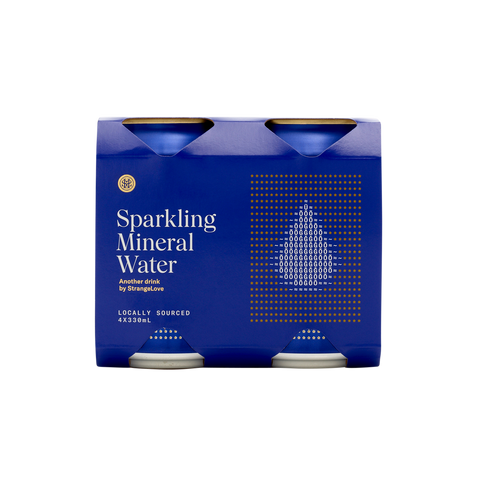Mineral Water vs Sparkling Water: Understanding the Key Differences
If you have landed on this very niche corner of the internet, it could only be for one of the following reasons;
1. You’re a painfully bored/boring individual
2. Pornhub is down
3. Or finally, are a true water drinker who knows not all water hits the same.
Mineral water and sparkling water are two popular choices when it comes to carbonated beverages. Whether you're looking for elevated refreshment or something to pair with your favorite cocktail, both options offer different and unique benefits. However, their origins, taste profiles, and health benefits can differ significantly. In this article, we'll explore the difference between mineral water and sparkling water, highlight their mineral water benefits and sparkling water benefits, and provide insights on how to choose the best option based on your personal preference or health goals.
What is Mineral Water?
Origins and Natural Sources of Mineral Water
Mineral water is sourced from natural springs or underground reservoirs deep within the Earth. These water sources are often protected from contamination, allowing the water to retain pure, natural properties. Over time, the water picks up essential minerals from the rocks and soil it passes through, such as calcium, magnesium, potassium, and sometimes even sodium and iron.
These minerals not only contribute to the unique taste of mineral water, which can range from slightly earthy to refreshing and crisp, but they also offer various health benefits. For example, calcium is essential for strong bones, magnesium helps with muscle function, and potassium supports heart health. Depending on the mineral composition, different mineral waters can provide specific health advantages, making them a popular choice for those seeking a more hydrating and nutritious beverage.
Mineral water is often prized for its purity and refreshing taste, with many people choosing it over regular tap water for its natural mineral content and unique flavor profile. Whether you're enjoying it straight from the bottle or as part of a hydrating routine, mineral water is a great choice for replenishing essential nutrients.
Natural Composition and Mineral Content
Mineral water is defined by its naturally occurring minerals, which are dissolved from rocks and underground sources over time. The mineral content of mineral water can vary significantly depending on its origin, giving each brand or type of mineral water its own unique taste and potential health benefits.
Some of the most common minerals found in mineral water include:
- Calcium: Essential for strong bones and teeth, calcium can also support healthy muscle function.
- Magnesium: Known for its muscle-relaxing properties, magnesium helps with nerve function, reducing cramps and promoting better sleep.
- Potassium: Vital for heart health, potassium helps regulate blood pressure and supports proper muscle and nerve function.
- Sodium: While typically found in small amounts, sodium plays a role in fluid balance and nerve function.
- Bicarbonates: Often present in mineral waters, bicarbonates help balance acidity in the body, promoting better digestion.
The specific mix of minerals in a particular source of mineral water affects its taste profile. For example, waters with higher levels of calcium may have a creamier taste, while those with more magnesium might taste slightly bitter or metallic. This mineral variety also influences the health benefits of mineral water. For example, magnesium-rich waters may be especially beneficial for muscle recovery, while potassium-heavy waters can support hydration and heart health.
By choosing mineral water based on its mineral content, you can tailor your beverage choice to align with your personal health goals or flavor preferences. Whether you're seeking hydration with extra minerals or just want a refreshing taste, the mineral composition of the water plays a significant role in both your experience and its potential benefits.
Health Benefits of Mineral Water
Mineral water offers a range of potential health benefits, making it more than just a refreshing drink. The naturally occurring minerals found in mineral water can support hydration and provide essential nutrients that contribute to overall health and well-being.
1. Enhanced Hydration
One of the primary benefits of mineral water is its ability to support hydration. While regular water is essential for hydration, mineral water takes it a step further by offering additional minerals like sodium and potassium, which help maintain proper fluid balance in the body. These minerals can also help replenish electrolytes lost during physical activity or on hot days, making mineral water an excellent choice for staying hydrated.
2. Improved Digestion
Some mineral waters are rich in bicarbonates, which can help neutralize stomach acid, promoting better digestion. This can be particularly beneficial for those who suffer from indigestion or acid reflux. The minerals in the water can also help support intestinal health and may improve the body’s ability to absorb nutrients, contributing to overall digestive wellness.
3. Provides Essential Minerals
Mineral water can act as an additional source of essential minerals that the body needs for optimal function.
These minerals are particularly appealing to individuals who may have a limited intake of these nutrients through food or supplements, providing an easy and natural way to enhance their daily nutrition.
4. Hydrating Without Extra Calories
Unlike many other beverages that contain added sugars or calories, mineral water is naturally low in calories and free from artificial additives. This makes it a great option for those looking to stay hydrated while avoiding excess sugars or artificial ingredients found in sodas and flavored waters.
5. Aiding Detoxification
Because mineral water is naturally pure and free of contaminants, it can help flush toxins from the body more effectively than regular water. The minerals also help the body maintain optimal pH levels, supporting natural detoxification processes and improving overall skin health.
What is Sparkling Water?
Definition and Production Process of Sparkling Water
Sparkling water is simply water that has been infused with carbon dioxide (CO2) to create the signature ‘fizz’ or ‘bubbles’. The carbonation process adds effervescence, giving the water a refreshing, bubbly texture that sets it apart from still water. Unlike mineral water, sparkling water doesn't naturally contain minerals unless they are added during production. Its main characteristic is the fizziness, which provides a light and crisp drinking experience.
The production process for sparkling water can vary, and there are typically two methods used to carbonate the water:
- Natural carbonation: Some sparkling waters, particularly those sourced from natural springs, may already contain dissolved carbon dioxide due to the geological conditions in the area. These waters are naturally effervescent, meaning they don’t require additional carbonation. However, natural sparkling waters may still have their mineral content, depending on the source.
- Artificial carbonation: Most sparkling waters on the market today are carbonated by injecting carbon dioxide gas into the water under high pressure. This process forces the gas to dissolve in the water, creating the familiar fizz. Some brands may also add minerals back into the water after carbonation to enhance flavor or mimic the taste profile of natural mineral waters.
While sparkling water typically has a neutral or mild taste, many brands offer flavored sparkling water by adding natural fruit essences or other botanicals, making it an appealing alternative to sugary sodas.
In summary, sparkling water is water that's carbonated for a fizzy, refreshing experience. It can be naturally carbonated from spring sources or artificially carbonated using CO2 gas, and it usually lacks the mineral content found in mineral water unless specifically added.
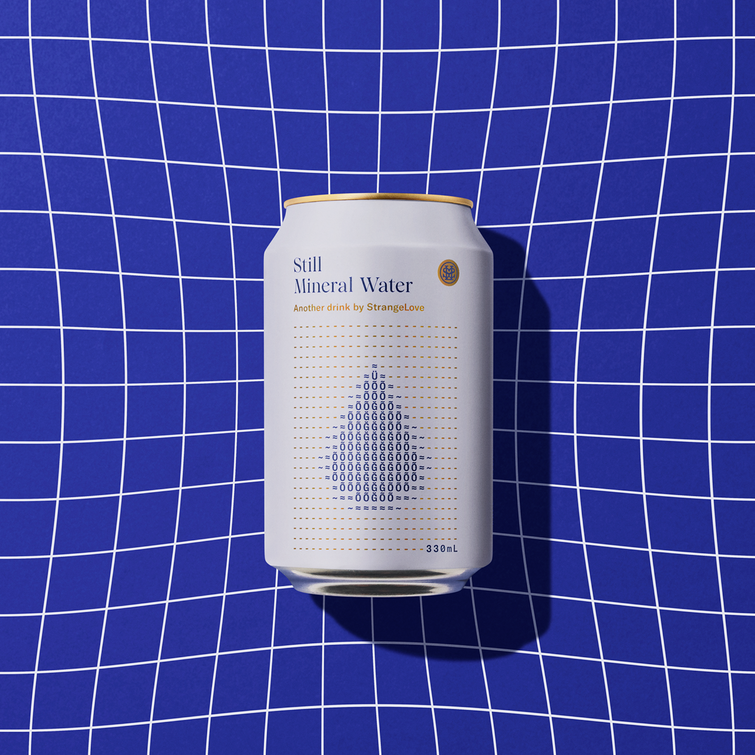

Types of Sparkling Water
Sparkling water comes in a variety of options, each offering unique features to suit different preferences. From plain, unflavored sparkling water to more complex flavoured varieties, there's a sparkling water for every taste and occasion. Some brands also offer sparkling waters with added minerals, giving them an extra dimension of flavor.
1. Plain Sparkling Water
Plain sparkling water is simply carbonated water with no added flavors, providing the pure, effervescent sensation of bubbles without altering the natural taste. This type of sparkling water is perfect for anyone who enjoys the refreshing fizziness of bubbles but prefers a neutral taste. It is commonly used as a mixer in cocktails, such as spritzers or gin and tonics, or enjoyed on its own for a hydrating, calorie-free drink.
2. Flavoured Sparkling Water
Flavoured or infused sparkling waters are becoming increasingly popular as a healthier alternative to sugary sodas. These waters are infused with natural fruit essences or other botanicals to provide a burst of flavor without the added calories or sugar.
StrangeLove offer a range of lightly infused sparkling waters, combining effervescence with delicate, natural extracts. For example, StrangeLove’s Tangerine Sparkling Water offers a refreshing and zesty citrus taste, while their Yuzu Sparkling Water delivers a tart note with a smooth finish. These drinks are perfect for those looking to enjoy a crisp, flavorful beverage without the sweetness of sugary sodas.
3. Sparkling Water with Added Minerals
Some sparkling waters are enhanced with minerals like calcium, magnesium, and potassium, similar to mineral water. These added minerals not only elevate the taste but also offer additional health benefits, such as better hydration and supporting muscle function. Sparkling water with added minerals can have a slightly different taste profile than regular sparkling water, often providing a more complex and refreshing experience.
StrangeLove’s luxurious Mineral waters incorporate high-quality, naturally occurring minerals, sourced from the Volcanic Highlands of the Macedon ranges in Country Victoria. StrangeLove’s Mineral Sparkling Water is a great example of natural high quality drinking water, combining the perfect level of carbonation with mineral-rich water to provide a distinctive, satisfying taste and mouth feel.
4. Sparkling Water with a Twist: Infused Varieties
Take sparkling water to the next level by infusing it with unique ingredients, creating an elevated taste experience. StrangeLove’s Pineapple Sparkling Water is sparkling water with a twist, offering a refreshing tropical flavor perfect for pairing with gin, tequila, mezcal or enjoying as a refreshing standalone sugar free drink. Similarly, their Lemon Sparkling waters delivers a fresh mixer that is ideal for cocktails or sipping on a warm afternoon.
Benefits of Drinking Sparkling Water
Sparkling water offers a variety of benefits, making it a popular choice for people looking to stay hydrated while enjoying a refreshing, carbonated beverage. Here are some of the key benefits of drinking sparkling water:
1. Hydration
Like still water, sparkling water is an excellent way to stay hydrated. The carbonation doesn’t affect the water's ability to hydrate, making it just as effective as regular water in replenishing your body’s fluids. It’s a great option for those who prefer a little fizz in their drink without sacrificing hydration or having to resort to sugar-laden sodas.
2. A Low-Calorie Alternative to Soft Drinks
Sparkling water is a low-calorie beverage, especially when compared to sugary soft drinks. Unlike sodas, which can be packed with added sugars and calories, most sparkling waters contain zero calories (unless flavorings are added). This makes sparkling water a healthy, guilt-free alternative to traditional carbonated beverages, perfect for those watching their calorie intake.
3. Aids in Digestion
The carbonation in sparkling water can help aid digestion by promoting the production of stomach acid and encouraging better digestion of food. The bubbles may also help relieve bloating or discomfort in the stomach after eating. Many people find that sipping sparkling water after a meal can help them feel more comfortable and support their digestive system.
4. A Fizzy Beverage Without Added Sugars
One of the major advantages of sparkling water is that it provides the fizz and interest of a carbonated drink without the need for added sugars. For those craving a bubbly beverage, sparkling water offers a refreshing alternative to sugary sodas or artificially flavored drinks. StrangeLove, offer a variety of flavored sparkling waters, allowing you to enjoy a tasty, fizzy drink without any of the added sugars or artificial ingredients.
5. Supports Healthy Weight Management
Because sparkling water is free of calories and sugars, it can also be a great addition to a weight management routine. The effervescence can help you feel fuller for longer, potentially reducing the desire for snacking between meals. Plus, the variety of flavors available in sparkling water makes it an enjoyable beverage choice for those looking to stay on track with a healthier diet.
6. Refreshing and Versatile
Sparkling water’s refreshing taste and versatility make it an excellent choice for various occasions. Whether you’re enjoying it on its own, using it as a mixer in cocktails, or pairing it with meals, sparkling water offers a fizzy option for those who want something more than still water. Its clean, crisp taste pairs well with a variety of dishes, making it a great addition to your hydration routine.
Mineral Water vs Sparkling Water: Key Differences
Source and Composition
The source and composition of mineral water and sparkling water are among the most significant factors that set them apart.
- Mineral Water: Mineral water originates from natural springs or underground reservoirs that are naturally enriched with a variety of minerals such as calcium, magnesium, potassium, and sodium. These minerals dissolve into the water as it flows through rocks and soil, giving mineral water its unique taste and health benefits. The mineral content is natural and varies depending on the geological conditions of the source, which makes each brand of mineral water distinct. This natural mineral infusion is the defining characteristic of mineral water.
- Sparkling Water: Sparkling water, on the other hand, is typically carbonated water that has been artificially infused with carbon dioxide gas under high pressure. While some sparkling waters come from natural springs and may contain some naturally occurring minerals, the effervescence is the primary distinction. Unlike mineral water, the carbonation process is not a natural feature of the source but is added either through artificial carbonation (where CO2 is pumped into the water) or through natural carbonation in some spring waters. The bubbles in sparkling water are what make it stand out, and these do not come from the minerals themselves.
In summary, while mineral water comes from natural sources and is enriched with minerals, sparkling water is defined by its effervescence, with carbonation added artificially or naturally. The minerals in mineral water are naturally occurring, whereas sparkling water's carbonation is primarily a result of human intervention.
Taste Profile
The taste profiles of mineral water and sparkling water differ significantly due to their distinct compositions and processes.
- Mineral Water: Mineral water often has a distinct flavor that is influenced by the natural minerals dissolved in it. Depending on the mineral content, it can range from slightly salty or earthy to smooth and crisp. Some mineral waters have a more robust or full-bodied taste, while others may be subtler. The unique combination of minerals, such as calcium, magnesium, and bicarbonates, contributes to the depth of flavor that sets mineral water apart from regular still water. This natural infusion of minerals makes it a favorite for those who appreciate a more complex drinking experience.
- Sparkling Water: In contrast, sparkling water is typically more neutral in taste. Its primary feature is the carbonation, which imparts a refreshing, fizzy sensation. Since most sparkling waters don't naturally contain minerals (unless added), their flavor profile is often lighter and less pronounced. The carbonation can give sparkling water a clean and crisp taste, but it is generally much more subtle than the mineral flavors found in mineral water. The emphasis here is on the effervescence rather than the flavor, making it a refreshing choice without the complexity of mineral content.
Health Impact
Both mineral water and sparkling water are excellent choices for hydration, but each offers its own set of health benefits and considerations, making them appealing to different needs and preferences.
- Mineral Water: One of the key health benefits of mineral water is its ability to provide essential minerals like calcium, magnesium, potassium, and sodium. These minerals contribute to various bodily functions, such as supporting bone health, muscle function, and hydration. For health-conscious consumers, mineral water is an attractive option because it helps replenish not only fluids but also essential nutrients. Drinking mineral water regularly can support overall wellness, especially for those who may not get enough of these minerals from their diet. It's particularly beneficial for people on low-sodium diets (depending on the mineral water’s sodium content) or for those needing a natural source of minerals without added sugars or artificial ingredients.
However, some individuals may be sensitive to the mineral content in water, particularly if the mineral levels are high. In such cases, they may find certain types of mineral water a bit too "salty" or earthy in taste.
- Sparkling Water: Like mineral water, sparkling water is a great option for hydration. The key difference, however, is that sparkling water typically does not contain minerals unless added by the brand. This makes it a great option for people who enjoy fizzy drinks but are looking for a more neutral flavor profile without the added nutrients that mineral water provides. For those who prefer sugar-free or calorie-free beverages, sparkling water is an excellent choice as it can be enjoyed without the health concerns associated with sugary sodas.
That said, some people may experience bloating or gas from the carbonation in sparkling water. The fizz can cause a buildup of air in the digestive tract, leading to discomfort, especially for individuals who are prone to gastritis or irritable bowel syndrome (IBS). It's important to note that the carbonation level in sparkling water can vary by brand, so people who are sensitive to bubbles may want to choose options with lower carbonation.
Additionally, sparkling water can sometimes contribute to tooth enamel erosion if consumed excessively, especially if the water is flavored or contains high levels of acidity. It's always advisable to drink sparkling water in moderation and to rinse the mouth afterward if drinking frequently.
How to Choose Between Mineral Water and Sparkling Water
Personal Preference and Taste
When choosing between mineral water and sparkling water, your personal flavour preferences play a major role.
- If you enjoy the natural taste of water with a slight depth of flavor, mineral water could be your ideal choice. The naturally occurring minerals in mineral water can give it a more robust and earthy taste, which some people find refreshing and satisfying. Mineral water is perfect for those who appreciate the subtle complexities in their beverages.
- On the other hand, if you crave a bubbly experience or love experimenting with different flavours, sparkling water might be more to your liking. Sparkling water typically has a clean, crisp taste and offers the added benefit of variety.
Nutritional and Lifestyle Goals
The choice between mineral and sparkling water can also depend on your nutritional and lifestyle goals.
- If you are looking for a water option that provides added minerals to support your health, mineral water is an excellent choice. It naturally contains essential minerals like calcium, magnesium, and potassium, which can help support bone health, muscle function, and overall hydration. If your lifestyle includes activities like sports or a healthy diet, mineral water can be a beneficial addition to ensure you're not only hydrating but also replenishing important nutrients.
- For those seeking a low-calorie and refreshing beverage without added sugars, sparkling water is the way to go. It's an ideal option for people who are mindful of their calorie intake or looking to reduce sugar consumption. Sparkling water can be a great alternative to sugary sodas or juices, offering effervescence without the added calories. Additionally, if you’re following a low-sodium or weight-conscious lifestyle, sparkling water can help you satisfy the craving for a fizzy, flavorful drink while keeping your nutritional goals intact.
Frequently Asked Questions
Is Sparkling Water the Same as Mineral Water?
No, sparkling water and mineral water are different. Sparkling water is water infused with carbon dioxide to create bubbles, giving it a fizzy, refreshing texture. It typically doesn’t contain natural minerals unless added. Mineral water, on the other hand, originates from natural springs and is enriched with minerals like calcium, magnesium, and potassium, giving it a distinct flavor. While both are great for hydration, mineral water offers added nutrients due to its natural mineral content, whereas sparkling water is known for its effervescence and neutral taste.
Can You Drink Mineral Water Every Day?
Yes, you can drink mineral water every day, and it can be a healthy choice. In fact, it provides essential minerals that support hydration and overall wellness. However, moderation is key, especially for those who are sensitive to certain minerals (like sodium). The recommended intake can vary based on your health and lifestyle, but drinking one to two bottles per day is typically fine for most people. Always consult with a healthcare professional if you have specific dietary restrictions or concerns about mineral intake.
Does Sparkling Water Have Any Negative Side Effects?
While sparkling water is generally safe, it can cause mild side effects in some individuals. The most common issue is bloating or a feeling of fullness due to the carbonation, especially for those sensitive to gas. If you have digestive concerns like IBS or gastritis, you may experience discomfort after drinking sparkling water. Additionally, excessive consumption of carbonated beverages may lead to tooth enamel erosion, particularly if the water is flavored or acidic. However, for most people, sparkling water is a healthy, low-calorie drink when enjoyed in moderation.
Why Choose StrangeLove’s Sparkling Waters?
StrangeLove's sparkling mineral waters are a premium choice for anyone seeking exceptional taste and quality. Sourced from Victoria's Macedon Ranges, their mineral waters feature a unique blend of naturally occurring minerals, enhancing both hydration and flavour. Options such as StrangeLove Sparkling Mineral Water and StrangeLove Still Mineral Water provide a crisp and refreshing taste that pairs well with a wide range of beverages, offering both purity and luxury. StrangeLove also offers lightly infused sparkling waters like Guava Sparkling Water and Lemon Sparkling Water, perfect for those looking for a twist on traditional sparkling waters. Whether you’re looking for a hydrating drink on its own or a premium mixer, StrangeLove's mineral waters elevate your drinking experience with superior quality.
